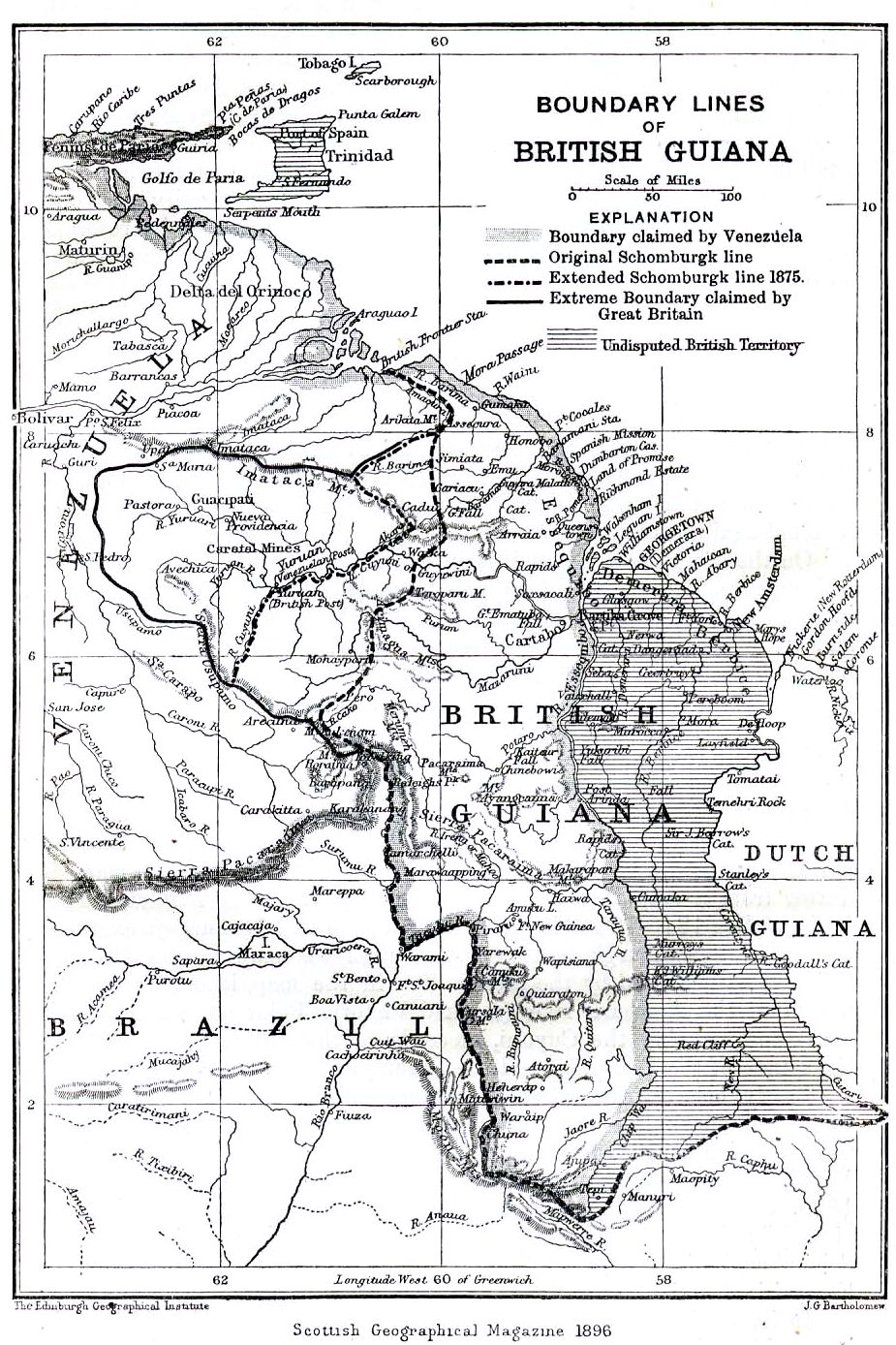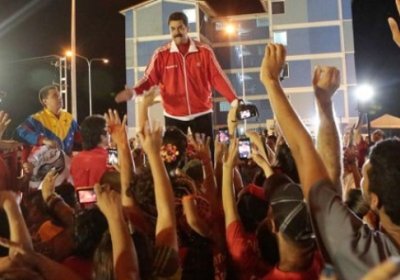 On February 27, 1989, the poorest Venezuelans took over the streets in protest against price rises.
Thousands of Venezuelans took the streets in February 1989 in a wave of protests that highlighted the right-wing misrule in the South American country. The protests came to be known as the Caracazo — an uprising that began in the capital Caracas — and ultimately shaped the country's future.
On February 27, 1989, the poorest Venezuelans took over the streets in protest against price rises.
Thousands of Venezuelans took the streets in February 1989 in a wave of protests that highlighted the right-wing misrule in the South American country. The protests came to be known as the Caracazo — an uprising that began in the capital Caracas — and ultimately shaped the country's future.
Hugo Chavez
 On February 27, 1989, the poorest Venezuelans took over the streets in protest against price rises.
Thousands of Venezuelans took the streets in February 1989 in a wave of protests that highlighted the right-wing misrule in the South American country. The protests came to be known as the Caracazo — an uprising that began in the capital Caracas — and ultimately shaped the country's future.
On February 27, 1989, the poorest Venezuelans took over the streets in protest against price rises.
Thousands of Venezuelans took the streets in February 1989 in a wave of protests that highlighted the right-wing misrule in the South American country. The protests came to be known as the Caracazo — an uprising that began in the capital Caracas — and ultimately shaped the country's future.
A whole packet of new economic initiatives are set to take effect in Venezuela after socialist President Nicolas Maduro announced a series of far-reaching measures in response to the country’s economic crisis on February 17.
In a televised five hour address to the nation, Maduro explained the extent of the economic crisis afflicting the country as well as his government’s plan to tackle it. Economic initiatives include changes to the country’s multi-tiered exchange rate, an increase in domestic petrol prices, a new tax system and expansion of community control over food distribution.
The 2016 summit of the Community of Latin American and Caribbean States (CELAC) began on January 26 with the meeting of foreign ministers and chancellors of the Latin American nations at the headquarters of the Union of South American Nations (UNASUR) in Mitad del Mundo, Quito, Ecuador.
CELAC, a regional body involving all nations in the Americas except for the United States and Canada, was officially created in Caracas in 2011 under the leadership of then-Venezuelan president Hugo Chavez.
Venezuela's rate of extreme poverty has continued to decline despite what the government has described as an “economic war” by right-wing opposition-aligned business sectors.
TeleSUR English said on January 17 that the latest official figures showed about 4.78% of Venezuelans now live in extreme poverty. That figure is slightly lower than those reported in November, which put the extreme poverty rate at 4.9%.
In the aftermath of Venezuela's right-wing US-backed opposition securing its electoral win over President Nicolas Maduro's United Socialist Party of Venezuela (PSUV) in the December 6 National Assembly elections, the South American country is heading for two confrontations, each reinforcing the other — a political and an economic one. The future is very uncertain.
On December 6, Venezuela held its 20th election in 17 years and one of its most difficult yet. With the opposition upping the ante in terms of media attacks and sabotage, 2.5 years of economic difficulties and since the passing of revolutionary leader Hugo Chavez, not to mention a recent right-wing victory in Argentina, the left and right around the world turned anxious eyes to Venezuela.
 Statue of Guaicaipuro. Photo: Correo del Orinoco.
A statue of Caribe indigenous resistance hero Guaicaipuro was unveiled on October 12 by Venezuelan President Nicolas Maduro to commemorate the Day of Indigenous Resistance.
Guaicaipuro, an indigenous chief of the Caribes, led one of the most successful resistance campaigns against invading Spanish colonial forces throughout the 1560s and is revered by many of Venezuela’s grassroots movements.
Statue of Guaicaipuro. Photo: Correo del Orinoco.
A statue of Caribe indigenous resistance hero Guaicaipuro was unveiled on October 12 by Venezuelan President Nicolas Maduro to commemorate the Day of Indigenous Resistance.
Guaicaipuro, an indigenous chief of the Caribes, led one of the most successful resistance campaigns against invading Spanish colonial forces throughout the 1560s and is revered by many of Venezuela’s grassroots movements.
 Workers from Venezuela's 'housing mission', which is building large numbers of public housing, march on Venezuela's independence day, July 5. Photo from Venezuela Analysis.
Venezuela's Bolivarian revolution has transformed the country since the rise to power of late socialist president Hugo Chavez in 1998 on a platform of tackling poverty and promoting participatory democracy.
Workers from Venezuela's 'housing mission', which is building large numbers of public housing, march on Venezuela's independence day, July 5. Photo from Venezuela Analysis.
Venezuela's Bolivarian revolution has transformed the country since the rise to power of late socialist president Hugo Chavez in 1998 on a platform of tackling poverty and promoting participatory democracy.
 It all began in 1835 when the British Empire sent a German-born naturalist and explorer to conduct geographical research in the South American territory it had colonised and named British Guiana.
In the course of his explorations, a map was drawn that well-exceeded the original western boundary first occupied by the Dutch and later passed to British control.
It all began in 1835 when the British Empire sent a German-born naturalist and explorer to conduct geographical research in the South American territory it had colonised and named British Guiana.
In the course of his explorations, a map was drawn that well-exceeded the original western boundary first occupied by the Dutch and later passed to British control.
When it comes to elections in Venezuela, there are at least three things you can usually count on. The upcoming December 6 elections for the National Assembly are no different — even if the result is far from certain.
The first is that much is at stake.
In a country where the poor majority has sought to advance radical change through popular mobilisations and votes, every election since Hugo Chavez’s successful 1998 bid for president has been transformed into a referendum on the future of the country’s “Bolivarian revolution”.
 Had Hugo Chavez not passed away in 2013, the former Venezuelan president and revolutionary socialist would have turned 61 on July 28. However, though Chavez is gone, his indelible imprint on Venezuela’s political landscape endures.
Had Hugo Chavez not passed away in 2013, the former Venezuelan president and revolutionary socialist would have turned 61 on July 28. However, though Chavez is gone, his indelible imprint on Venezuela’s political landscape endures.
 Protest against Guarimba, Caracas, January 21. Photo: Cory Fischer-Hoffman.
Leftists in Venezuela have put forward several explanations for the pressing economic difficulties and growing discontent that have beset the nation recently. These difficulties raise the possibility of an opposition takeover of the National Assembly in this year’s elections.
Protest against Guarimba, Caracas, January 21. Photo: Cory Fischer-Hoffman.
Leftists in Venezuela have put forward several explanations for the pressing economic difficulties and growing discontent that have beset the nation recently. These difficulties raise the possibility of an opposition takeover of the National Assembly in this year’s elections.
- Previous page
- Page 4
- Next page





